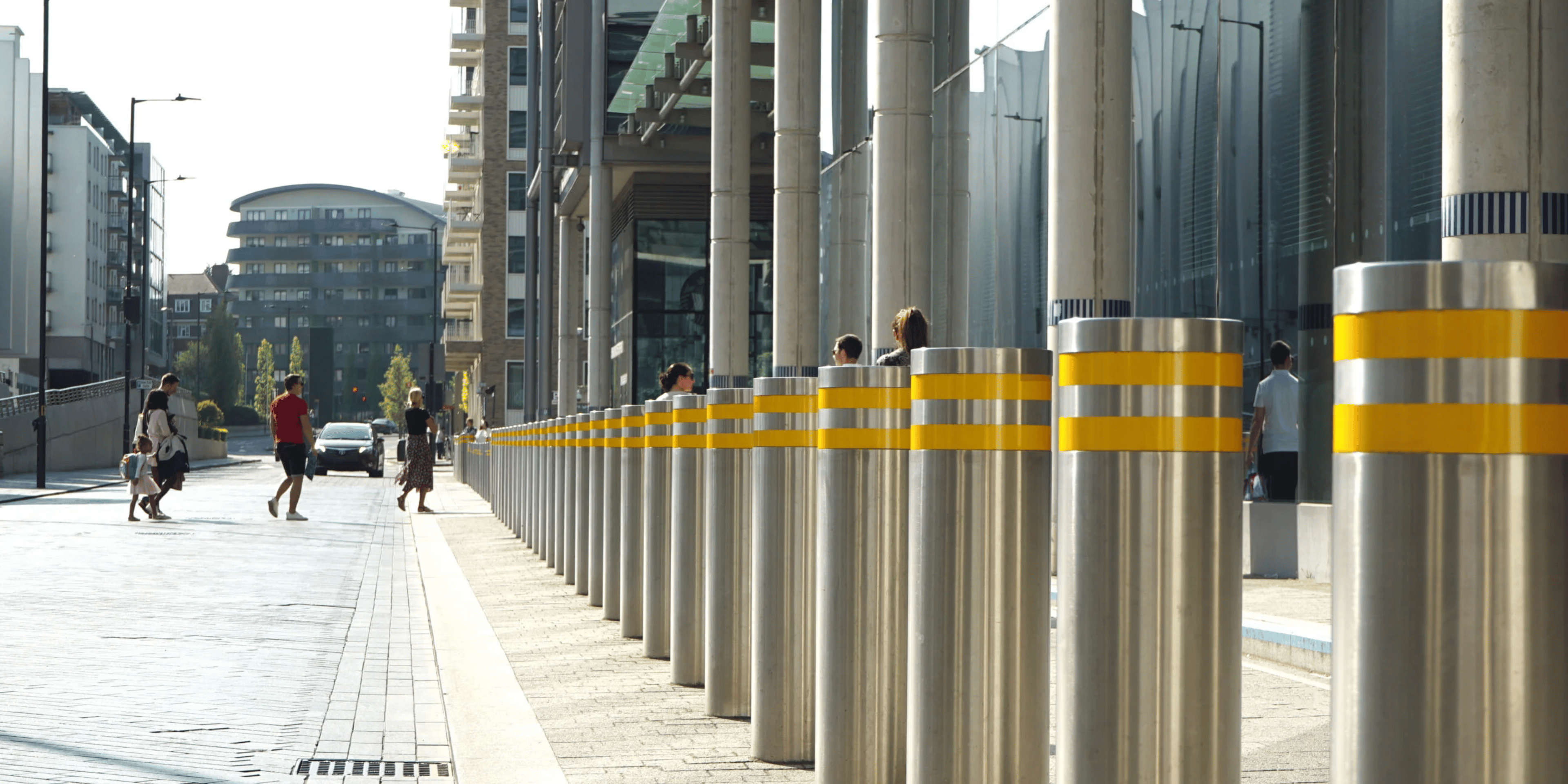
7 Essential Security Solutions for Construction Site Managers

Overview
The primary focus of this article is to identify essential security solutions that construction site managers should implement to protect their projects effectively. Security challenges in the construction industry are significant and often underestimated, with theft costing UK businesses over £1m a week. This reality underscores the necessity of robust security measures. Ignoring these risks can lead to severe financial, operational, and reputational consequences, jeopardising project integrity and stakeholder trust.
In practise, implementing advanced surveillance systems, access control, and cybersecurity measures is not merely a precaution; it is a strategic investment in business continuity. These proactive approaches not only mitigate risks but also enhance operational continuity and protect valuable assets. The lesson is clear: security is not an expense; it is essential for safeguarding project viability and long-term success.
Priority First plays a crucial role in this landscape by offering tailored solutions grounded in evidence and measurable outcomes. With over £1.6bn in assets secured and rapid response times, their approach prioritises client needs while ensuring comprehensive protection. Early investment in security measures can prevent greater losses later, making it a critical component of construction management.
Introduction
In the construction industry, security often takes a backseat. However, the stakes are incredibly high. Theft, vandalism, and cyber threats can lead to significant financial losses and project delays. The reality is that the need for robust security solutions has never been more critical. This article examines seven essential security strategies that construction site managers can implement to safeguard their projects, assets, and personnel.
What does this mean for businesses? Ignoring security risks can result in not only financial repercussions but also operational disruptions and reputational damage. The lesson is clear: proactive security measures are vital for maintaining business continuity.
Priority First offers pragmatic solutions tailored to the construction sector. By investing in effective security strategies now, businesses can prevent greater losses in the future while enhancing operational efficiency and ensuring compliance with safety regulations in an ever-evolving landscape. In practise, these tailored solutions not only mitigate risks but also contribute to overall business resilience.
Priority First Security Services: Tailored Protection for Construction Sites
In the realm of construction, the need for customised security solutions is paramount. Building locations face unique security challenges that, if overlooked, can lead to significant financial losses and operational disruptions. The reality is that inadequate protection can jeopardise project timelines and asset integrity, highlighting security as a critical yet often underestimated business function.
Priority First Protection Services addresses these challenges with advanced technologies, including AI-driven tools, and a team of seasoned professionals. Their extensive services, such as on-site personnel, advanced CCTV monitoring, efficient access control, and rapid-response patrols, are meticulously designed to safeguard valuable assets. In practise, these tailored protective measures not only mitigate risks but also enhance overall security, demonstrating the substantial influence of proactive strategies in the building sector.
The lesson is clear: early investment in security is essential to prevent greater losses down the line. With over £1.6bn in assets secured, Priority First stands as a trusted advisor, offering that contribute to business resilience. By prioritising safety, construction projects can maintain their momentum and uphold their reputations, ensuring that security is seen not as an expense, but as a vital component of business continuity.
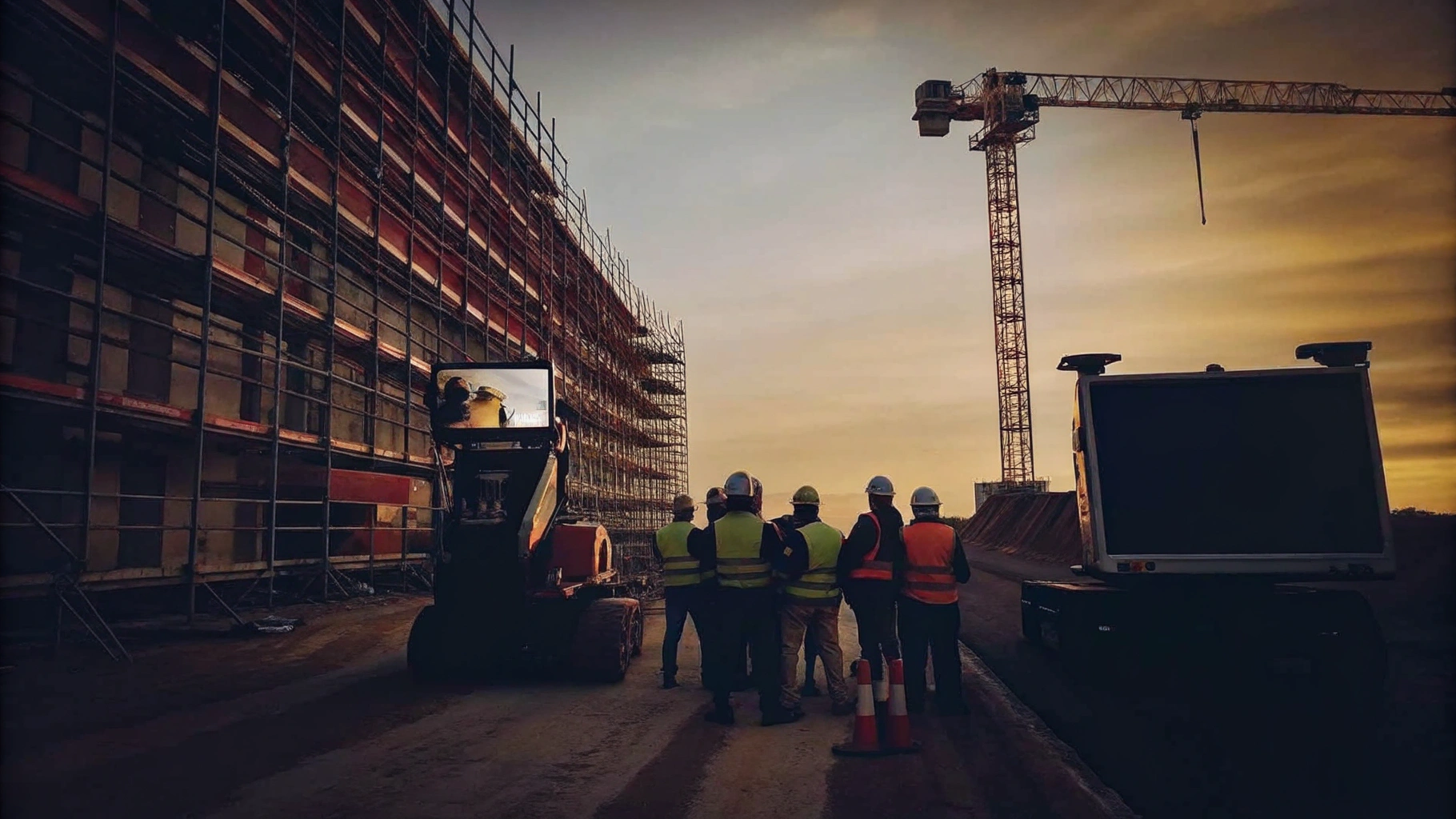
Fastly Managed Security Service: Proactive Measures for Enhanced Site Safety
Priority First Security Services offers a comprehensive Managed Security Service that significantly enhances safety at building locations through proactive measures. Continuous monitoring and rapid incident response protocols enable project managers to effectively mitigate risks related to theft, vandalism, and unauthorised access. This service ensures that are swiftly identified and managed, preventing escalation and providing reassurance to both managers and stakeholders.
The effectiveness of ongoing oversight is underscored by the fact that 92% of surveyed building locations reported incidents of theft, with individual losses often exceeding £100,000. By employing advanced CCTV systems that provide 24/7 monitoring, building locations can deter criminal activity and ensure that any suspicious behaviour is promptly captured and addressed. For instance, modern CCTV systems equipped with intelligent technology send immediate alerts to response teams upon detecting unusual activity, facilitating quick action and minimising potential losses.
Proactive protective measures, including mobile CCTV units and intelligent lighting, are essential in 2025 as construction sites face increasing threats. These strategies not only enhance safety but also foster a more secure working environment, thereby boosting employee morale and trust. Industry leaders assert that investing in robust security solutions is not merely an overhead but a strategic necessity that safeguards assets and ensures operational continuity in a high-risk landscape. By prioritising these proactive strategies, site supervisors can effectively safeguard their investments and maintain project timelines.
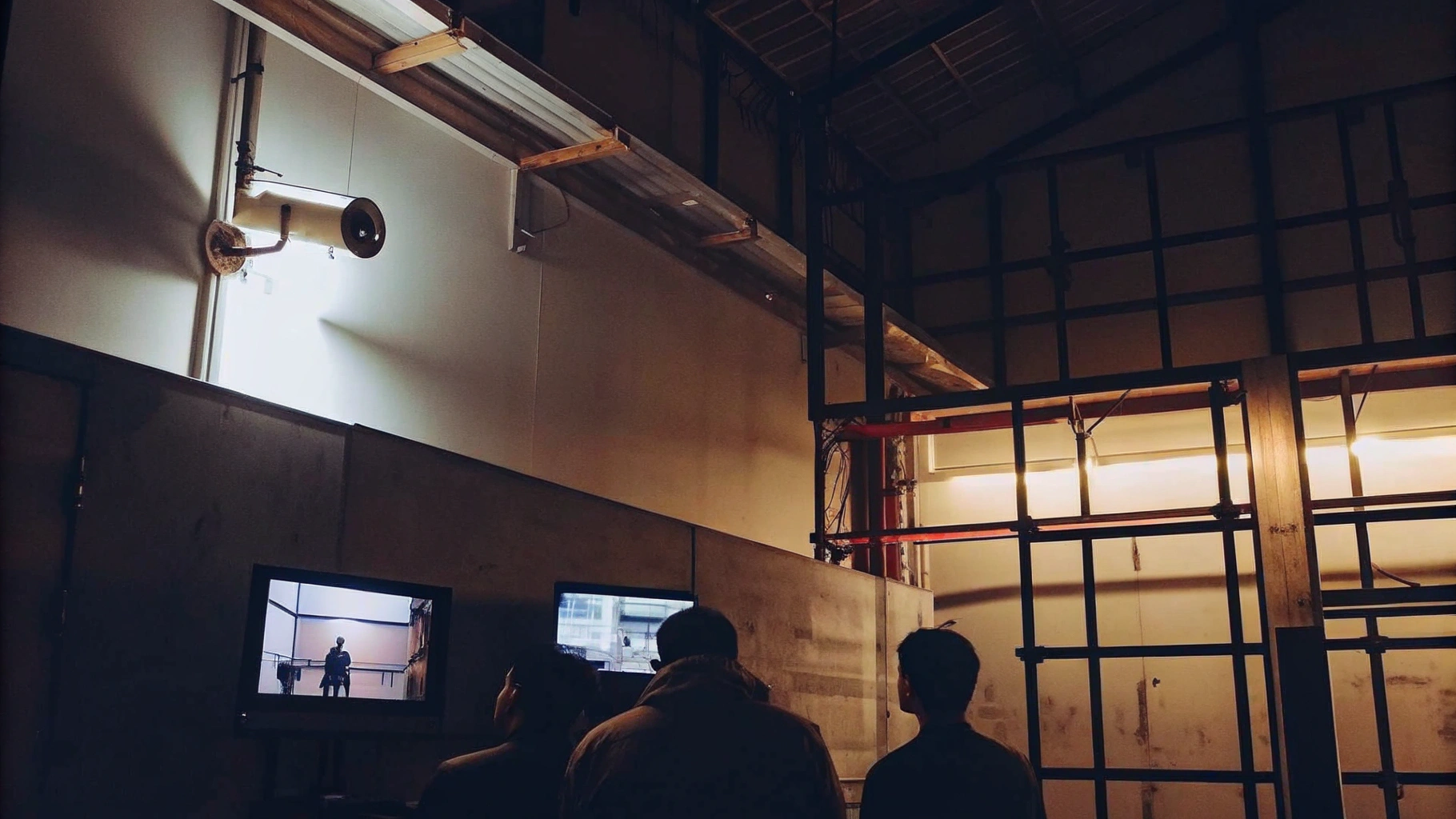
Imperva Application Security: Safeguarding Sensitive Data on Construction Projects
In 2025, cybersecurity is essential for construction projects as companies increasingly depend on digital tools, which raises the risk of data breaches. This reality underscores the necessity of to protect sensitive data, ensure compliance with industry regulations, and maintain client confidentiality. Ignoring these risks can lead to significant financial, operational, and reputational consequences. Implementing robust security solutions, including:
- Encryption techniques
- Limiting network access
- Conducting routine audits
is vital to mitigate risks associated with unauthorized access and cyber threats.
Moreover, ongoing cybersecurity awareness training for employees is crucial, as they often represent the weakest link in the security chain. The lesson is clear: recognizing and responding to phishing scams and other cyber threats is vital for protecting sensitive project information. As the building sector continues to evolve digitally, prioritizing security solutions will not only safeguard assets but also enhance operational efficiency and client trust. Early investment in cybersecurity measures can prevent greater losses in the future, positioning companies to thrive in an increasingly digital landscape.
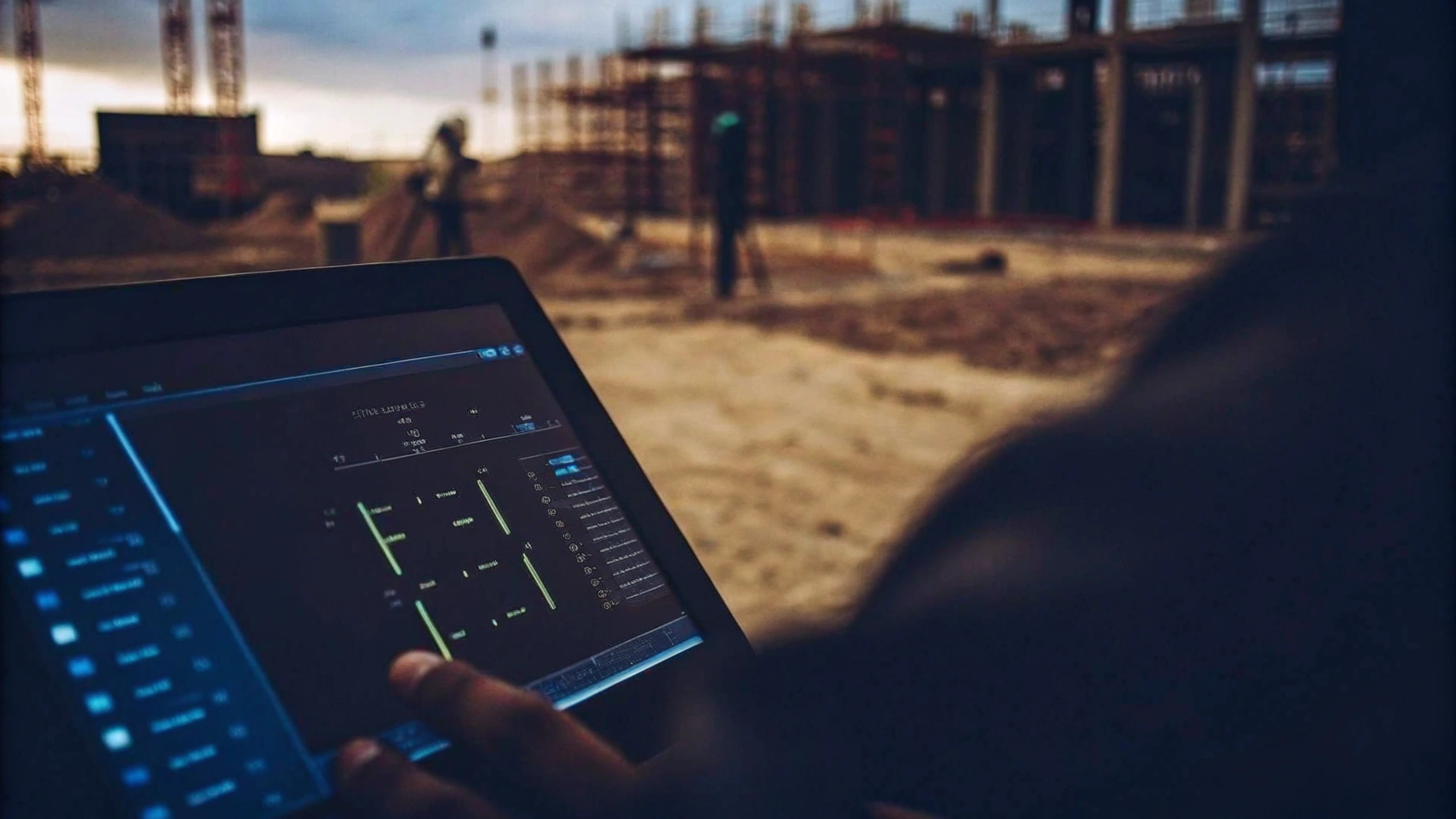
SentinelOne Cybersecurity Solutions: Defending Against Cyber Threats in Construction
In light of increasing cyber threats, building companies must prioritise robust cybersecurity measures to defend against ransomware and phishing attacks. The building sector is particularly vulnerable due to its , which has expanded the attack surface for cybercriminals. Effective cybersecurity strategies, such as the security solutions provided by Priority First, are vital for protecting sensitive project data and ensuring operational continuity.
Priority First offers tailored security management and consulting services, including:
- Threat evaluations
- Security policy formulation
- Risk management planning
These services help firms enhance their protection and operational efficiency. Advanced threat detection and response capabilities are essential for project managers. By implementing comprehensive security solutions, firms can proactively identify and mitigate risks linked to ransomware attacks, which are anticipated to reach unprecedented levels in 2025. These attacks not only jeopardise financial stability but can also inflict significant reputational damage, deterring prospective clients and partners.
To effectively combat these threats, building firms should embrace multifaceted strategies that encompass:
- Employee training
- Data encryption
- Regular system updates
Priority First underscores the necessity of developing a customised security solutions strategy that aligns with specific business objectives while ensuring thorough protection. Furthermore, implementing measures such as multifactor authentication and network segmentation can significantly bolster cybersecurity within the building sector. By leveraging advanced technologies and fostering a proactive approach, firms can enhance their resilience against the sophisticated tactics employed by cybercriminals, safeguarding both digital assets and the integrity of ongoing projects.

GuidePoint Security: Expert Vulnerability Management for Construction Safety
Efficient vulnerability management is crucial for implementing effective security solutions in building operations. By conducting thorough risk evaluations, project managers can pinpoint potential vulnerabilities in their protective measures. This proactive approach not only bolsters site security solutions but also ensures compliance with industry regulations, safeguarding both personnel and assets. In 2025, the emphasis on risk reduction tactics will be paramount, as building companies increasingly adopt advanced management systems powered by AI to prevent accidents and enhance protective measures.
Current best practices for risk mitigation in construction security include:
- Implementing robust access control systems to regulate the flow of personnel and vehicles, ensuring that only authorised individuals access sensitive areas, thus reducing the risk of theft and unauthorised entry.
- Conducting routine inspections to identify emerging risks and ensure compliance with evolving regulations.
- Utilising AI-driven tools for predictive analytics, which can foresee potential accidents based on site conditions and worker experience, thereby enhancing the effectiveness of protective measures.
- Holding morning briefings to reinforce protocol awareness and encourage open discussions about risks.
- Leveraging digital platforms for real-time collaboration among stakeholders, improving transparency and responsiveness to risks.
- Integrating wearable technology to monitor workers' health metrics and swiftly detect unsafe conditions.
Furthermore, it is essential to recognise that up to a third of UK building workers have faced mental health challenges, underscoring the need for comprehensive risk evaluations that include mental health considerations. Additionally, 89% of modular building adopters report benefits in security solutions, which highlights the effectiveness of modern building techniques in enhancing safety. By implementing these strategies, including efficient logistics management to ensure the organised movement of materials and personnel, project managers can foster a safer working environment, diminish the likelihood of incidents, and ultimately protect their investments.
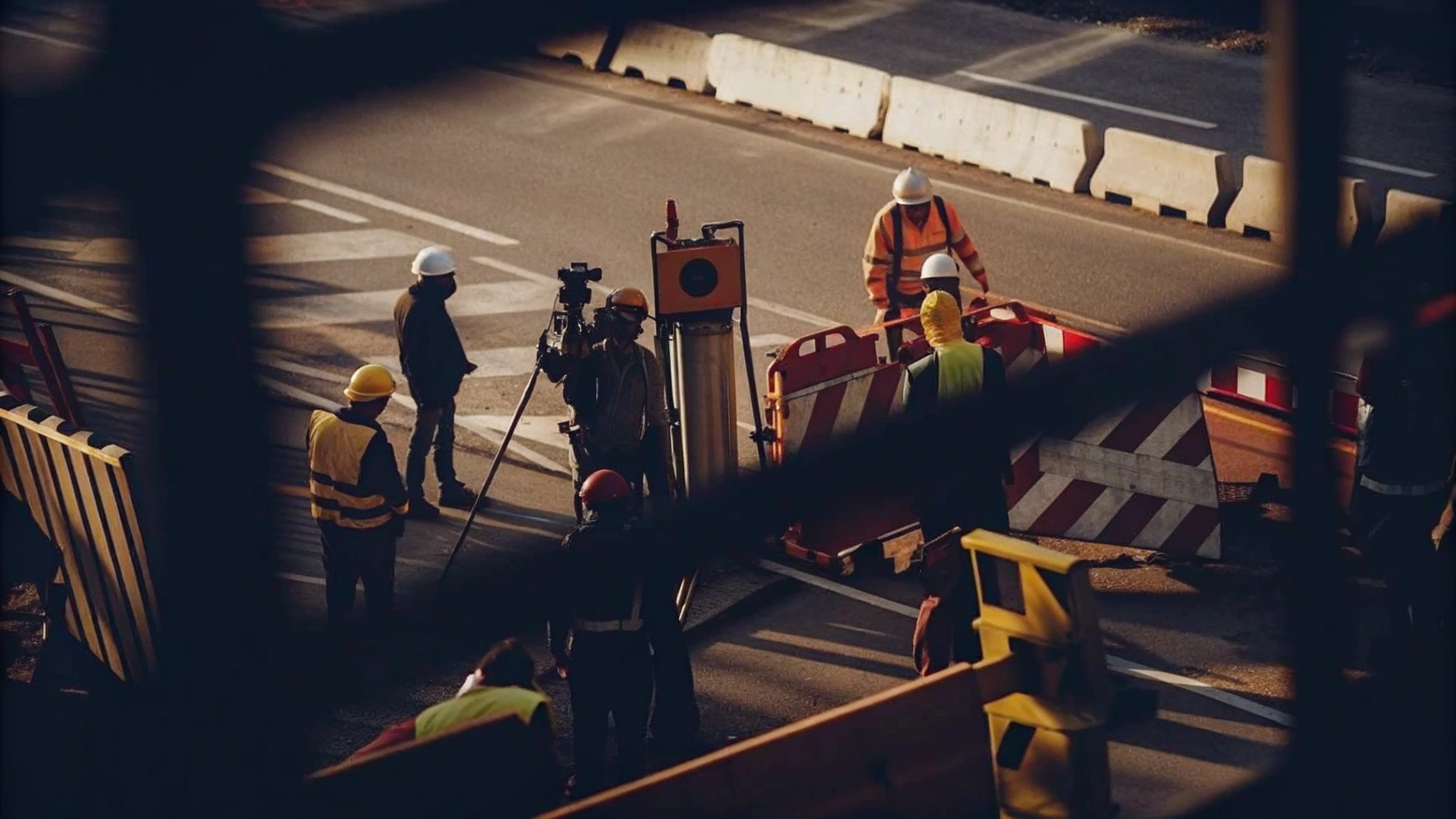
OpenText Managed Detection and Response: Rapid Threat Detection for Construction Sites
In 2025, the security landscape for construction sites is evolving, with security solutions for real-time monitoring becoming increasingly essential. Priority First Security Services provides these cutting-edge systems, which integrate AI-driven technology to enable continuous surveillance and immediate threat detection. This capability allows construction managers to respond swiftly to any suspicious activities, thereby protecting both physical assets and enhancing worker well-being. The reality is that proactive strategies not only foster a secure environment but also support uninterrupted operations.
AI-powered surveillance can analyse live video feeds to identify unauthorised access or unsafe behaviour, triggering instant alerts for rapid response. Ignoring such risks can lead to significant financial losses, operational disruptions, and reputational damage. In practise, the costs associated with theft and vandalism can far exceed the investment in robust security measures. By mitigating these risks, Priority First ensures compliance with health and safety regulations while implementing security solutions to safeguard investments and workforce integrity.
By leveraging Priority First's expertise in logistics and facilities management, project managers can maintain secure and operationally effective locations. Our case studies demonstrate that the integration of these novel security strategies has proven successful, with over £1.6bn in assets secured and rapid response times that underscore our commitment to client-centric protection. The lesson is clear: early investment in security not only prevents greater losses later but also establishes a foundation for long-term business resilience.
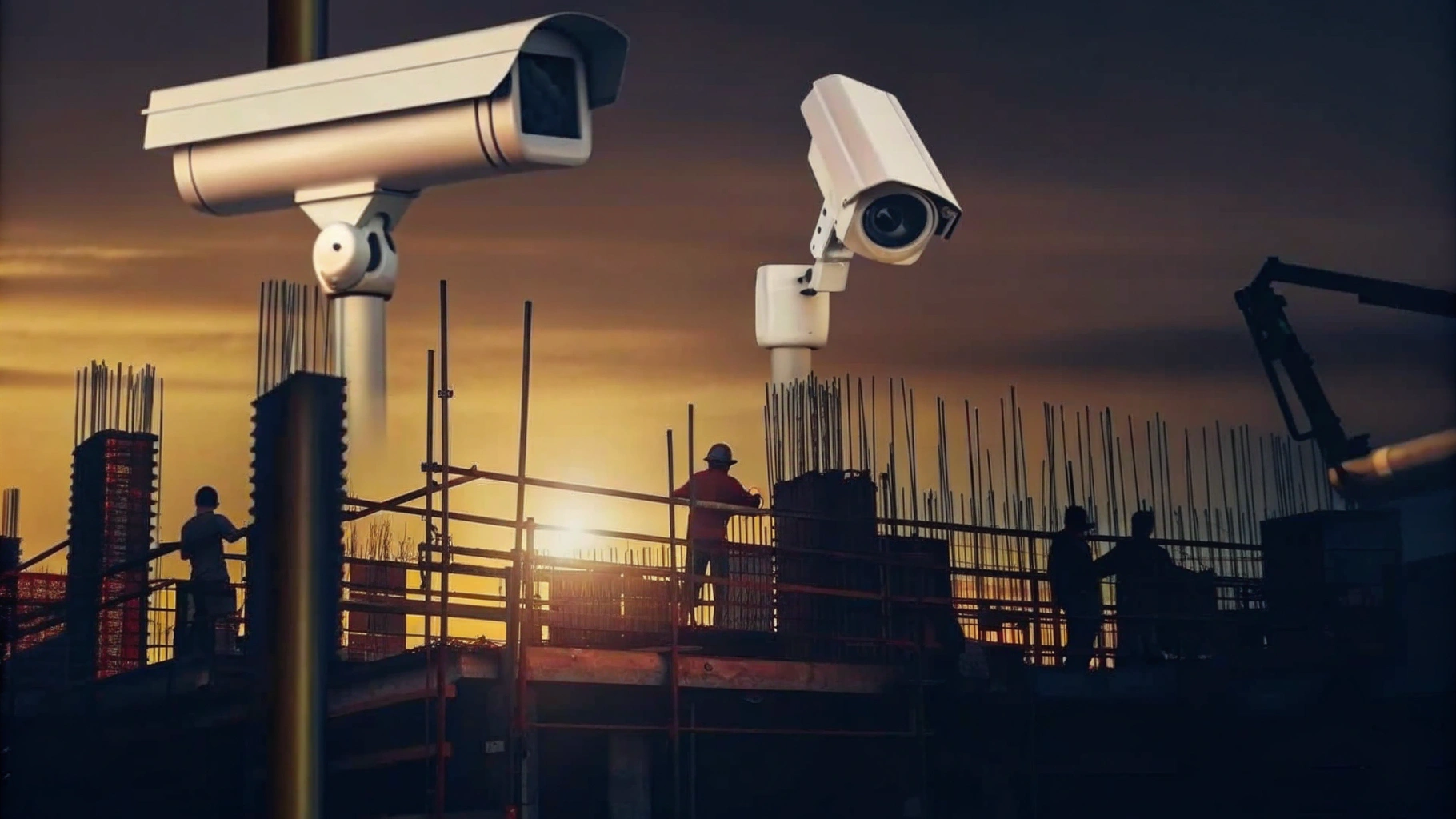
Imperva DDoS Protection: Ensuring Operational Continuity on Construction Sites
DDoS protection is vital for maintaining operational continuity at construction sites, where project timelines can be severely disrupted by malicious attacks. In 2025, the incidence of DDoS attacks targeting building locations has surged, resulting in substantial financial consequences. The average cost of downtime attributed to a DDoS attack is approximately £22,000 per minute, underscoring the imperative for project managers to adopt robust protective measures.
Utilising allows project managers at Priority First to effectively safeguard their operations against DDoS attacks. Priority First provides comprehensive protection services specifically designed for businesses across the UK, ensuring efficient resource utilisation and keeping projects on schedule. As cybersecurity expert Mohammed Khalil remarked, "Understanding the DDoS landscape is critical for mitigating financial risks," highlighting the necessity of preparedness in the face of evolving cyber threats.
Furthermore, the financial ramifications of DDoS attacks on construction projects can be staggering, with estimates indicating that a single damaging attack can incur costs nearing £500,000 when considering lost revenue and recovery expenses. Consequently, investing in thorough DDoS protection through Priority First is not merely a precaution; it is a strategic move to secure the future of construction operations and uphold client trust by implementing robust security solutions.
AI-Driven Security Tools: Enhancing Construction Site Protection
AI-driven security tools are revolutionising protection in construction areas by providing sophisticated monitoring and threat detection capabilities. These technologies facilitate real-time analysis of site activities, enabling rapid responses to potential threats. For instance, AI cameras can automatically detect absent personal protective equipment (PPE) and alert supervisors, significantly enhancing compliance and security. Furthermore, predictive analytics can pinpoint unsafe behaviours, such as mobile phone usage in restricted zones, ensuring that workers remain focused on their tasks.
The reality is that by 2025, the integration of AI into security protocols is expected to further bolster location safety and operational efficiency. Leveraging AI-powered temporary CCTV solutions allows site managers to achieve extensive surveillance with minimal manpower, covering large areas and providing remote access for real-time monitoring. This proactive approach not only but also enhances overall organisation of the site. Priority First’s CCTV monitoring service, available 24/7, guarantees that your property or premises is continuously under surveillance, even during out-of-office hours and weekends.
The implications of AI on construction site safety are significant. Automated alerts from AI systems can instantly inform response teams, enabling immediate reactions to incidents. That said, Priority First is committed to integrating its services with existing protection systems, ensuring minimal disruption while enhancing your current setup. As the construction sector increasingly adopts these innovative technologies, the focus is shifting from reactive measures to proactive strategies that prioritise security and efficiency.
In practise, early investment in security solutions driven by AI can prevent greater losses down the line. The lesson is clear: security solutions are not merely an expense; they are a critical component of business continuity. By prioritising safety through advanced technologies, businesses can safeguard their assets and ensure operational resilience.
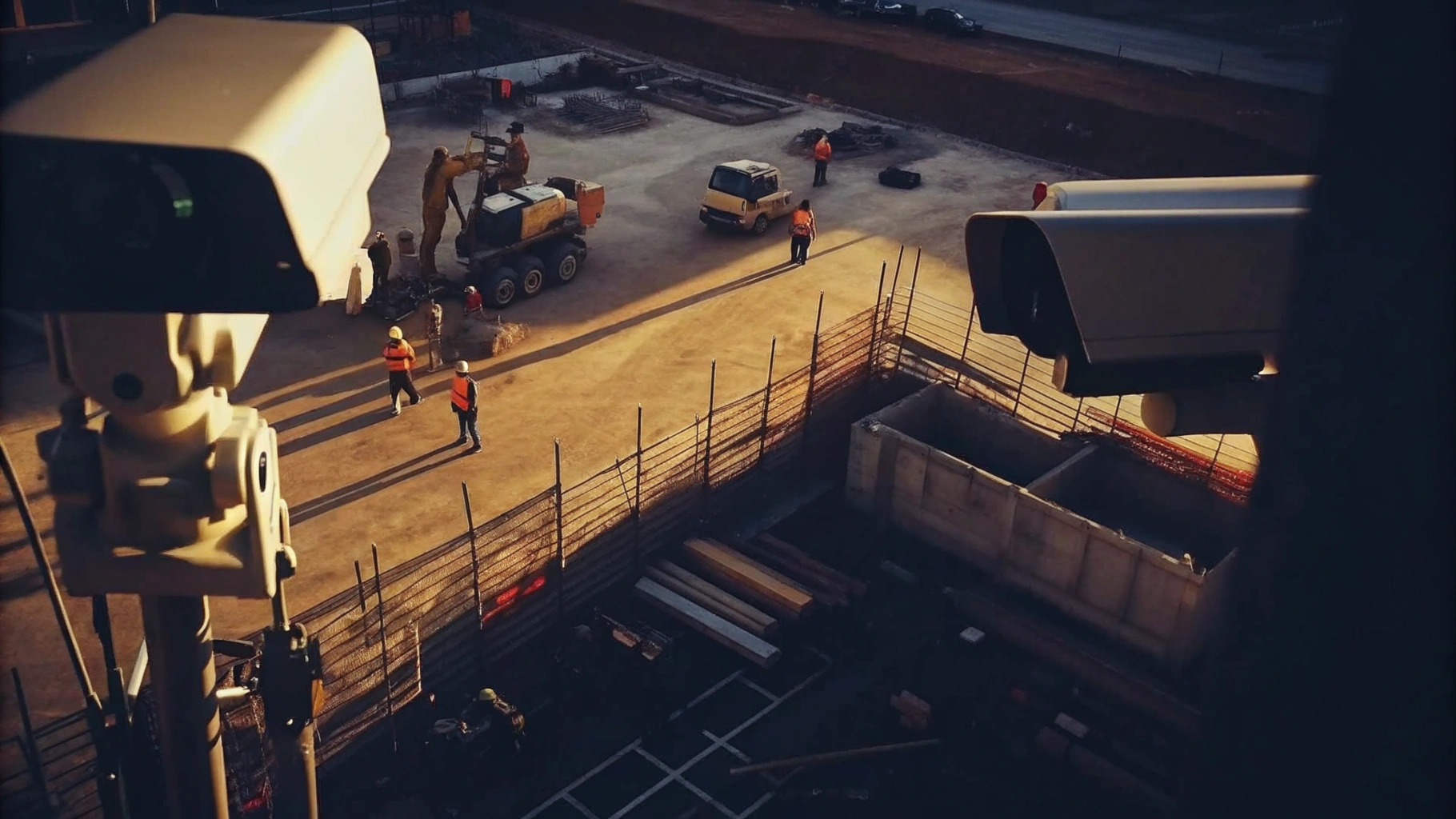
Compliance with Safety Regulations: A Key Security Consideration for Construction
Following safety regulations is crucial for effective construction area protection. Construction managers bear the responsibility of ensuring that all safety measures align with local and national regulations, a necessity for safeguarding workers and minimising liability. By prioritising compliance, companies can cultivate a safer working environment and mitigate the risk of costly penalties tied to non-compliance.
Establishing robust access control systems, as provided by Priority First, serves as security solutions that ensure only authorised individuals can access sensitive areas, significantly enhancing overall site protection. Furthermore, conducting regular security inspections and providing comprehensive training not only fulfil regulatory requirements but also bolster the effectiveness of protective measures.
Industry leaders stress that a is essential; it not only protects the workforce but also strengthens the company’s reputation. Ignoring compliance can lead to severe repercussions, including substantial fines, project delays, increased insurance costs, and potential legal actions, underscoring the importance of integrating regulatory measures into every aspect of project management.
As we approach 2025, the emphasis on compliance will only intensify, making it imperative for project managers to stay informed and proactive in their safety practises.
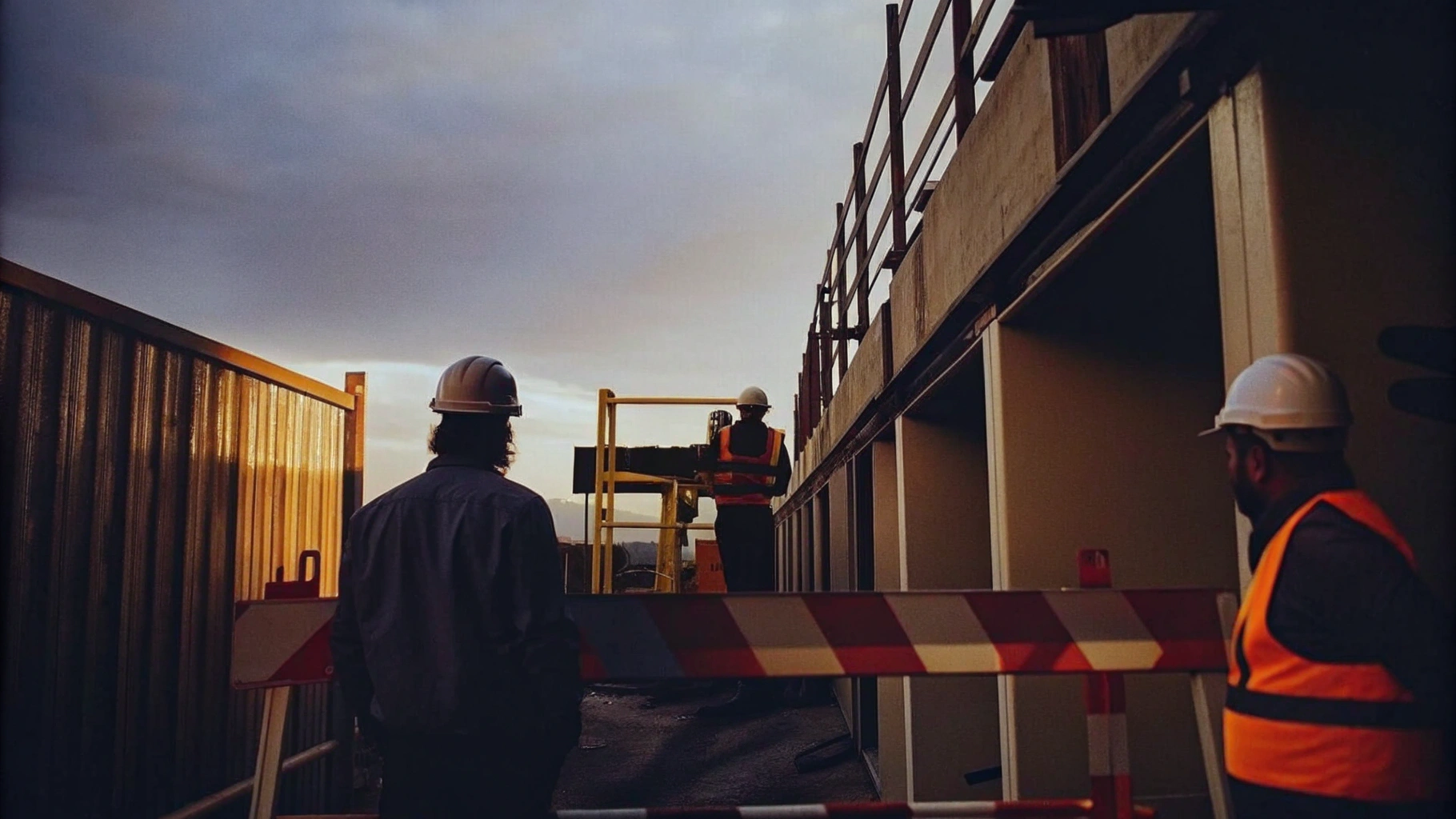
Tailored Security Solutions: Meeting Unique Challenges of Construction Sites
Customised protection strategies are crucial for addressing the unique challenges faced by construction sites. Each project carries specific risks, such as theft of materials, vandalism, and unauthorised access. Tailoring protective measures to the specific needs of a project allows building managers to ensure comprehensive safety and maintain a secure environment throughout the construction process.
For example, Priority First's deployment of Rapid Deployment CCTV Towers has transformed industry standards. These mobile, self-contained units can be rapidly established and moved as projects progress, offering near-360° surveillance and real-time alerts. This adaptability is essential, given that construction sites frequently change, with layouts evolving and valuable equipment often left unguarded overnight.
Moreover, Priority First's logistics and facilities management services play a vital role in maintaining site safety and order. By overseeing material flow and ensuring effective facility management, these services enhance both safety and efficiency within the building environment.
The impact of customised protective measures on project success is significant. Industry data indicates that theft and vandalism cost the UK's construction sector approximately £1 billion annually, highlighting the urgent need for proactive protective strategies. Tailored security solutions, like those offered by Priority First, help mitigate these risks and enhance overall operational efficiency, allowing teams to focus on their core responsibilities without the persistent worry of security breaches.
Security experts stress the necessity of a customised approach. As one specialist noted, "Conventional monitoring systems weren't designed to monitor assets spread over such distances, especially in complete darkness." This statement reinforces the need for that cater to the specific challenges present at each construction site.
Looking ahead to 2025, the trend toward customising security solutions is expected to intensify, driven by technological advancements and increasingly sophisticated criminal tactics. Construction managers are encouraged to consult with Priority First to develop bespoke strategies that address their unique vulnerabilities, ensuring their projects remain secure and on schedule.

Conclusion
Investing in robust security solutions is now a critical necessity for construction site managers. The complexities and unique challenges inherent in construction environments demand a tailored approach to security that encompasses both physical and cyber protection. By prioritising advanced technologies and proactive measures, construction firms can effectively safeguard their assets, maintain compliance, and ensure operational continuity.
The reality is that customised security strategies, such as AI-driven tools, managed security services, and effective vulnerability management, are essential. Implementing these solutions not only mitigates risks associated with theft, vandalism, and cyber threats but also fosters a safer working environment for employees. As the construction sector evolves, integrating these measures will be paramount to uphold project timelines and protect valuable resources.
The lesson is clear: the construction industry stands at a pivotal point where security must be viewed as an integral part of business strategy rather than merely a cost. By embracing tailored security solutions and remaining vigilant against emerging threats, construction site managers can enhance their resilience and reputation, ultimately securing their projects against both present and future challenges. It is imperative for industry leaders to act now and invest in comprehensive security measures to ensure a safe and successful operational landscape.
Frequently Asked Questions
Why is customised security important for construction sites?
Customised security is important for construction sites because they face unique security challenges that can lead to significant financial losses and operational disruptions if not addressed. Inadequate protection can jeopardise project timelines and asset integrity.
What services does Priority First Security Services offer for construction site protection?
Priority First Security Services offers a range of services including on-site personnel, advanced CCTV monitoring, efficient access control, and rapid-response patrols, all designed to safeguard valuable assets on construction sites.
How does the Managed Security Service enhance safety at building locations?
The Managed Security Service enhances safety through continuous monitoring and rapid incident response protocols, which help mitigate risks related to theft, vandalism, and unauthorised access by swiftly identifying and managing potential threats.
What statistics highlight the importance of security in construction?
A survey revealed that 92% of building locations reported incidents of theft, with individual losses often exceeding £100,000, emphasising the need for effective security measures.
What proactive measures can be employed to protect construction sites?
Proactive measures include advanced CCTV systems with 24/7 monitoring, mobile CCTV units, intelligent lighting, and immediate alerts to response teams upon detecting unusual activity, all of which enhance site safety.
Why is cybersecurity crucial for construction projects in 2025?
Cybersecurity is crucial because construction companies increasingly rely on digital tools, raising the risk of data breaches. Effective security solutions are necessary to protect sensitive data, ensure compliance, and maintain client confidentiality.
What strategies can be implemented to improve cybersecurity in construction?
Strategies to improve cybersecurity include using encryption techniques, limiting network access, conducting routine audits, and providing ongoing cybersecurity awareness training for employees.
What is the significance of early investment in security measures for construction companies?
Early investment in security measures is significant as it helps prevent greater losses in the future, safeguards assets, enhances operational efficiency, and builds client trust in an increasingly digital landscape.



